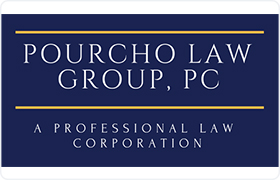East Irvine Collection Lawyer, California
Sponsored Law Firm
-
 x
x

Click For More Info:
-
Pourcho Law Group, PC
2618 San Miguel Dr Suite 410 Newport Beach, CA 92660» view mapCollection Law Results Driven Legal Assistance
Ben Pourcho and the legal support team at the Pourcho Law Group, PC have a proven track record of providing the highest quality of legal representation to our clients.
800-936-1321
Michael Gary Martin
Bankruptcy, Collection, Credit & Debt, Wills & Probate
Status: In Good Standing Licensed: 41 Years
FREE CONSULTATION
CONTACTJonathan James Dunn
Construction, Litigation, Contract, Collection
Status: In Good Standing Licensed: 32 Years
Bruce Allan Wilson
Tax, Business & Trade, Collection, Bankruptcy
Status: In Good Standing Licensed: 31 Years
Donald B Lane
Business & Trade, Construction Liens, Collection, Credit & Debt
Status: In Good Standing Licensed: 60 Years
 Ben Pourcho Newport Beach, CA
Ben Pourcho Newport Beach, CA Practice AreasExpertise
Practice AreasExpertise
